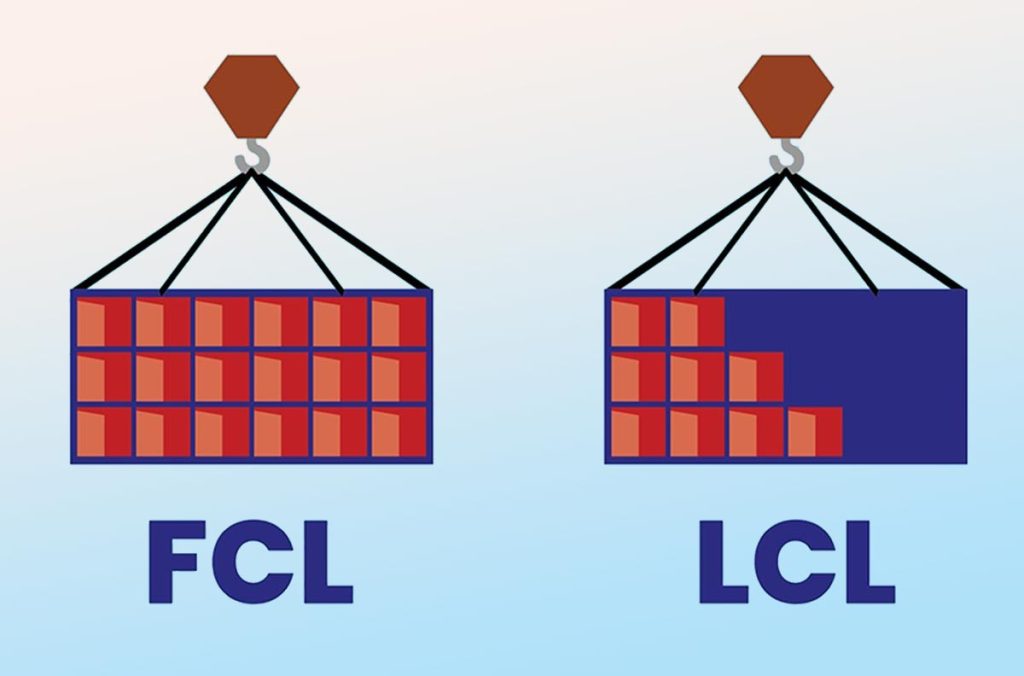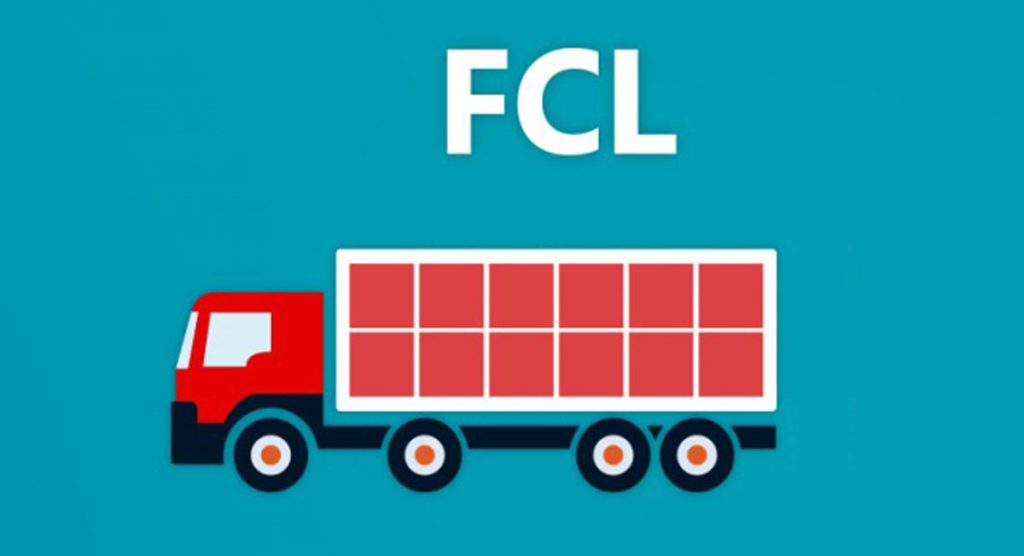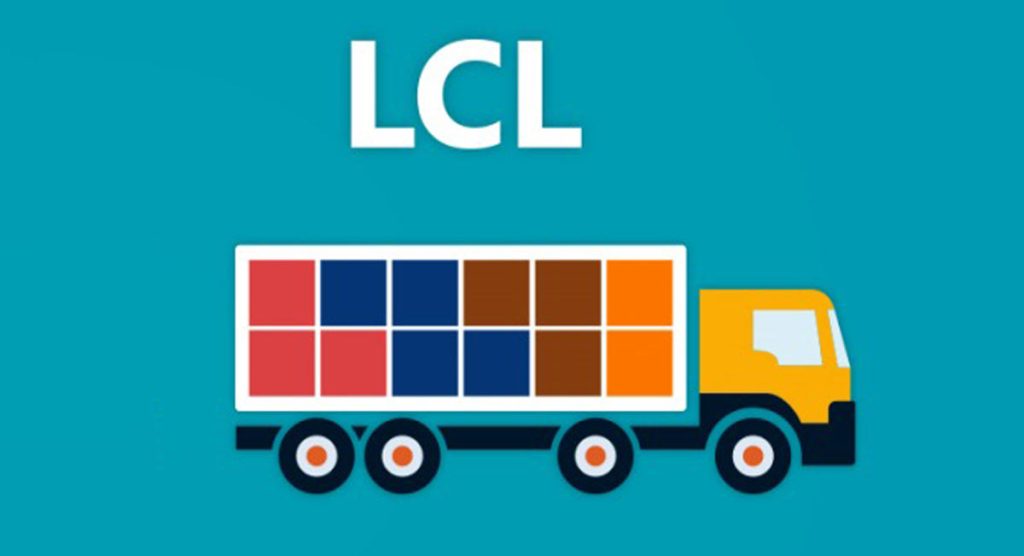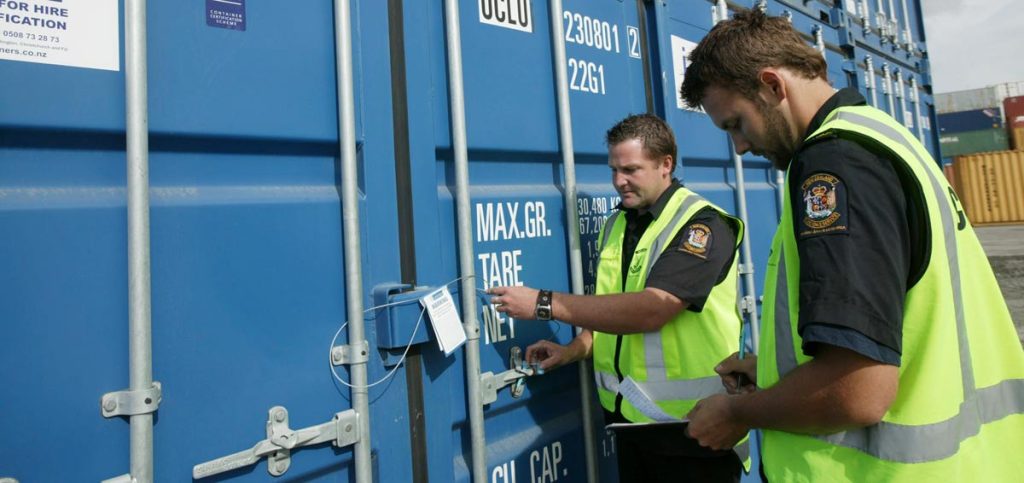As a logistics company based in China, we specialize in facilitating the seamless transport of products from manufacturers to destinations worldwide. This comprehensive guide will delve into Full Container Load (FCL) and Less than Container Load (LCL) shipping, exploring their advantages, disadvantages, processes, and how our services can streamline your logistics.

Shipping from China can be complex, but understanding the two primary methods– CFL and LCL–can simplify decision-making.
Full Container Load (FCL) refers to a shipping method where a single shipper occupies an entire container with their goods. This means that one party is responsible for the shipment, typically involving larger volumes (15 cubic meters or more), which allows for efficient use of space.
Less than Container Load (LCL) is a shipping option where multiple shippers share a container. This approach is ideal for smaller shipments that do not fill an entire container, allowing businesses to transport their goods without incurring the costs associated with renting a full container.
Choosing between FCL and LCL depends on several factors, including shipment size, budget, and urgency.
Volume of Cargo: If you have enough cargo to fill a container, FCL is the better choice. For smaller volumes, LCL offers a more economical solution.
Budget: While shipping via FCL can be cost-effective for larger loads, LCL may be preferable for businesses operating on tight budgets.
Delivery Timeline: FCL generally has faster transit times as it bypasses the need to consolidate shipments with others.
Safety Concerns: FCL shipments tend to have a lower risk of damage because goods are not shared with other suppliers' cargo.

It is important to weigh the pros and cons of FCL before making a decision.
Cost Efficiency: For large shipments, FCL can reduce the cost per unit, making it an economical choice.
Reduced Risk of Damage: With a dedicated container, the risk of items being damaged during handling or transport decreases significantly.
Faster Delivery: FCL shipments usually move faster through customs and ports because they do not require consolidation or deconsolidation processes.
Simplified Logistics: Managing a single container simplifies the logistics process and minimizes complications.
Higher Upfront Cost: The initial cost may be higher compared to LCL, especially if you don't have enough cargo to fill a container.
Storage Challenges: If your business cannot accommodate a full container of goods, you may face storage problems.
Longer Lead Times: Sometimes, it may take longer to wait for enough cargo to fill a container, delaying shipment.

When considering LCL, it is important to analyze its benefits and disadvantages.
Lower Minimum Order Quantity: Ideal for small to medium-sized businesses that don't have the volume to fill an entire container.
Flexibility: LCL allows flexibility in shipping, allowing you to send goods as they become available.
Cash Flow Management: Allows businesses to avoid tying up capital in large inventories by shipping smaller batches.
Access to Diverse Products: Importers can mix orders from multiple suppliers, reducing the need to consolidate shipments separately.
Higher Cost per Unit: While LCL is economical for smaller shipments, the cost per unit can be higher compared to FCL when shipping larger volumes.
Longer Transit Times: The process of consolidating and deconsolidating shipments can lead to longer transit times.
Increased Risk of Damage: Since LCL shipments are shared with other cargo, there is a greater risk of damage during handling; your goods may be moved multiple times before reaching their destination.
Less Control Over Shipping Schedule: With LCL, you may have less control over departure and arrival times as it depends on the consolidation schedule.
Understanding the FCL shipping process can help you manage expectations and streamline logistics.
Quotation: Contact our logistics team to receive a quote based on the volume, weight, and nature of your cargo.
Booking: Once you confirm the quote, we will book a container for your shipment with a reliable carrier.
Preparation: Prepare all necessary documentation, including commercial invoices, packing lists, and any required permits.
Loading: Coordinate with your supplier to load the container at their facility. We can assist with this step to ensure the proper loading and securing of the goods.
Transportation to Port: The loaded container is transported to the port of departure.
Customs Clearance: We handle customs clearance to ensure compliance with international regulations.
Shipping: The container is shipped to the designated port, where it will be unloaded upon arrival.
Delivery: Finally, we arrange for the delivery of the container to your specified location.
The LCL shipping process involves more steps due to the consolidation of multiple shipments.
Quotation: Similar to FCL, start by contacting us for a quote based on your cargo specifications.
Booking: Upon agreement, we will reserve space for your cargo in an upcoming LCL shipment.
Documentation Preparation: Ensure all necessary documents are prepared, including pro forma invoices and packing lists.
Consolidation: Your goods are collected and consolidated with other shipments in a shared container.
Transport to Port: The consolidated shipment is then transported to the port of departure.
Customs Clearance: Our team manages customs documentation and clearance for the entire consolidated shipment.
Shipping: The container departs for its destination port, where it will undergo unloading.
Deconsolidation: On arrival, the container is deconsolidated, separating your goods from those of other shippers.
Delivery: Arrangements are made for the delivery of your individual shipment to your address.
7. Cost Considerations
Understanding the cost structure of FCL and LCL shipping can help businesses budget effectively and make informed decisions.

Flat rate for renting the entire container.
Additional fees may include terminal handling fees, documentation fees, and customs duties.
Costs may vary by container size (20ft, 40ft) and shipping route.
Fees are usually charged based on the volume (cubic meters) or weight of your cargo, whichever is higher.
Additional costs may include handling fees, documentation fees, and customs duties.
LCL may also incur a surcharge for storage and transportation between the warehouse and the port.
It is essential to conduct a thorough analysis of both options to determine which method provides the best balance between cost and efficiency for your specific needs.

Navigating customs regulations is a critical aspect of international shipping. Both FCL and LCL shipments require customs clearance to ensure compliance with local laws and regulations.
Key Aspects of Customs Clearance
Documentation: Required documents include commercial invoices, bills of lading, packing lists, and any other relevant paperwork depending on the nature of the goods.
Duties and Taxes: Importers must be aware of any applicable duties and taxes that may significantly affect overall costs.
Regulations: Certain products may have specific regulations or restrictions. It is vital to check that your goods comply with these regulations to avoid delays.
Our logistics company takes care of the entire customs clearance process, ensuring that every document is in order and that your shipment complies with all the necessary regulations.
As a reputable logistics partner based in China, our primary goal is to facilitate smooth, efficient shipping processes for our customers. Here's how we can assist you throughout your shipping journey:
Consultation and Quotation: We provide initial consultations to assess your shipping needs and provide tailored quotations for both FCL and LCL services. Our knowledgeable team will guide you through the options available based on your size, weight, and budget.
Booking and Coordination: We handle all aspects of booking containers with carriers, coordinating schedules, and ensuring that timelines are met. Our established relationships with shipping lines allow us to ensure reliable service at competitive rates.
Preparation and Submission: Our experts prepare and manage all the documentation required for international shipping, including commercial invoices, packing lists, and customs declarations. This reduces the risk of errors and ensures compliance with regulations.
Customs Clearance: We specialize in customs clearance processes, providing our clients with peace of mind that their shipments will be cleared efficiently. We stay up-to-date on changes to customs regulations and procedures to avoid potential delays.
Protection of Your Assets: We offer freight insurance options to protect your goods from loss or damage during transit. Our team can advise you on appropriate coverage based on the value and nature of your shipments.
Visibility and Transparency: With our advanced tracking systems, you can monitor the status of your shipment in real time. We provide regular updates on location, estimated arrival times, and any issues that may arise during transit.
Storage Solutions: If you require storage before or after your shipment, we offer storage solutions that include inventory management and distribution services. Our facilities are strategically located to facilitate efficient transfers to destination points.
Dedicated Support Team: Our customer support team is always available to address your queries and concerns. We believe in building long-term relationships with our clients by providing responsive and personalized service.

Choosing between FCL and LCL shipping depends on various factors, including the size of your shipment, your budget, and your timeline. Both methods have unique advantages and disadvantages, and it is essential to carefully evaluate your specific needs.
At 218 Freight, we pride ourselves on being a reliable partner in the logistics industry. Whether you choose FCL or LCL shipping, our experienced team will ensure a smooth process from start to finish. We invite you to contact us today to discuss how we can help you achieve your shipping goals.